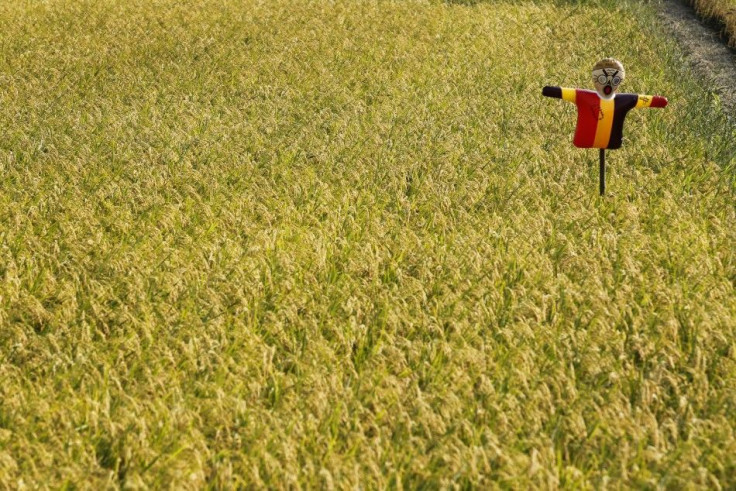Japan: Radioactive Rice Found on Fukushima Farm

Rice shipments have been stopped from leaving Japan after traces of radioactive Cesium (above the safety level) were found on the crop for the first time since the Fukushima nuclear plant meltdown.
A sample of rice tested from a farm about 37 miles from the power plant contained 630 becquerels of cesium per kilogram, 130 becquerels more per kilogram than is safe for human consumption. The test was the first time that authorities found dangerous levels of radiation since the government deemed rice in Fukushima safe last month.
The Fukushima prefecture's government told 154 farms in the area to halt all shipments of rice.
“The government is considering ordering a shipment restriction and hopes to come to a conclusion promptly,” government spokesman Osamu Fujimura said at a press conference on Thursday.
Contaminated food has been an ongoing source of concern in the eight months since the Fukushima meltdown. A number of other foods have been found with high cesium levels recently, including green tea, mushrooms and beef, as well as some livestock animals and even whales.
Earlier this month, Japanese MP Yasuhiro Sonoda drank a glass of water taken from a radioactive puddle in the Fukushima Daiichi nuclear power plant to prove to reporters that the water was safe.
Water from reactors 5 and 6 is being used to spray trees around Fukushima to reduce the chance of fire. The water that Sonoda drank was radioactive, but had been cleaned of dangerous cesium isotopes -134 and -137, as well as of iodine.
Seven months after the nuclear disaster, tens of thousands of people still haven't been allowed to return to their homes in the 12 mile-secure perimeter around the plant.
In April, then chief cabinet secretary, Yukio Edano, ate a strawberry grown about 30 miles from the plant in Iwaki, Japan.
This is food that people who are going through great pain devoted all of their energy to produce, Edano said at a farmer's market.
Only safe produce is being distributed. Please eat it.
© Copyright IBTimes 2024. All rights reserved.





















